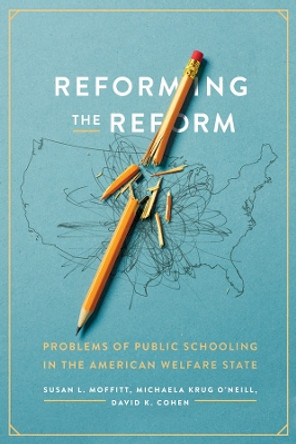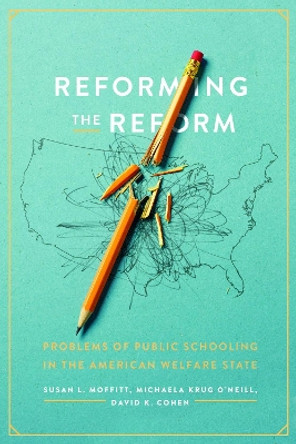Description
This book challenges the convention that government bureaucrats seek secrecy and demonstrates how participatory bureaucracy manages the tension between bureaucratic administration and democratic accountability.
About the Author
Susan L. Moffitt is the Mary Tefft and John Hazen White, Sr Assistant Professor of Political Science and Public Policy at Brown University. Before joining the faculty at Brown in the fall of 2009, she was a Fellow at the Center for American Political Studies and a Robert Wood Johnson Scholar of Health Policy Research at Harvard University. Her research program focuses on the development and use of knowledge in government agencies, with particular emphasis on the fields of K-12 education policy and pharmaceutical regulation. Moffitt's scholarship connects the study of institutional development with salient and enduring policy problems. Her first book, The Ordeal of Equality (co-authored with David K. Cohen), was published in 2009. Her work has appeared in the American Journal of Political Science, the Journal of Politics, the Journal of Law, Economics and Organization, the American Journal of Education, and numerous edited volumes. She holds a PhD and an MPP from the University of Michigan and a BA from the University of Rochester.
Reviews
'Making Policy Public is the best study of advisory committees at any level of government, ever. Susan L. Moffitt offers a novel theoretical perspective about why these committees came to exist, how they are used, and the potential value of their operation for policy making and policy implementation. Moffitt then tests the hypotheses that emerge from this account in very rigorous and nuanced ways.' Daniel Carpenter, Harvard University, Massachusetts
'With this highly original study of federal advisory committees, Susan Moffitt offers anyone interested in democratic government a book that is timely and yet of enduring value. Rich in detail and brimming with insights from careful empirical research, Making Policy Public brings into sharp relief two vital but underappreciated aspects of American bureaucratic policy making: its participatory character and its dependence on information exchange.' Cary Coglianese, University of Pennsylvania
'Moffitt boldly dives into long-standing assumptions about bureaucracy, democracy, accountability, and performance by flipping the question of participation: it's not how participation can control bureaucracy to insure accountability, but rather how does a participatory bureaucracy seek out and utilize public advice through public committees? Through incredibly thoughtful and insightful cases of pharmaceutical information regulation and reporting on the progress of education, Moffitt takes the reader into the world of public committees, the bureaucracies that create them for public advice, and the implications for our policy-making processes.' Anne Khademian, Virginia Tech
'In Making Policy Public, Susan Moffitt makes a vital theoretical contribution to the study of democratic policy making by demonstrating both when and how public participation produces superior policy outcomes through the accrual of additional expertise from a diverse array of stakeholders. Making Policy Public's persuasive logic and evidence underscore the importance of pluralist democracy for improving the conduct of bureaucratic governance and policy making that extends well beyond the representation of diverse interests within the polity.' George A. Krause, University of Pittsburgh
'Professor Moffitt's argument is entirely novel and has changed the way I think about the relationship between elected officials and government agencies. Her multimethod approach is outstanding, and readers gain a real appreciation for the historical work, the data collection, the archival work, and the interviews.' David Lewis, Vanderbilt University
'Making Policy Public is a major contribution to the study of bureaucratic politics. Moffitt demonstrates the important and previously overlooked role of agency advisory committees for both gaining information and communicating to the public. This research will cause scholars to reassess the contribution of advisory committees and take notice of their positive contributions to democracy. This book is must-reading for scholars of public administration and political science.' Kenneth J. Meier, Texas A&M University
Book Information
ISBN 9781107665972
Author Susan L. Moffitt
Format Paperback
Page Count 274
Imprint Cambridge University Press
Publisher Cambridge University Press
Weight(grams) 400g
Dimensions(mm) 228mm * 152mm * 16mm







